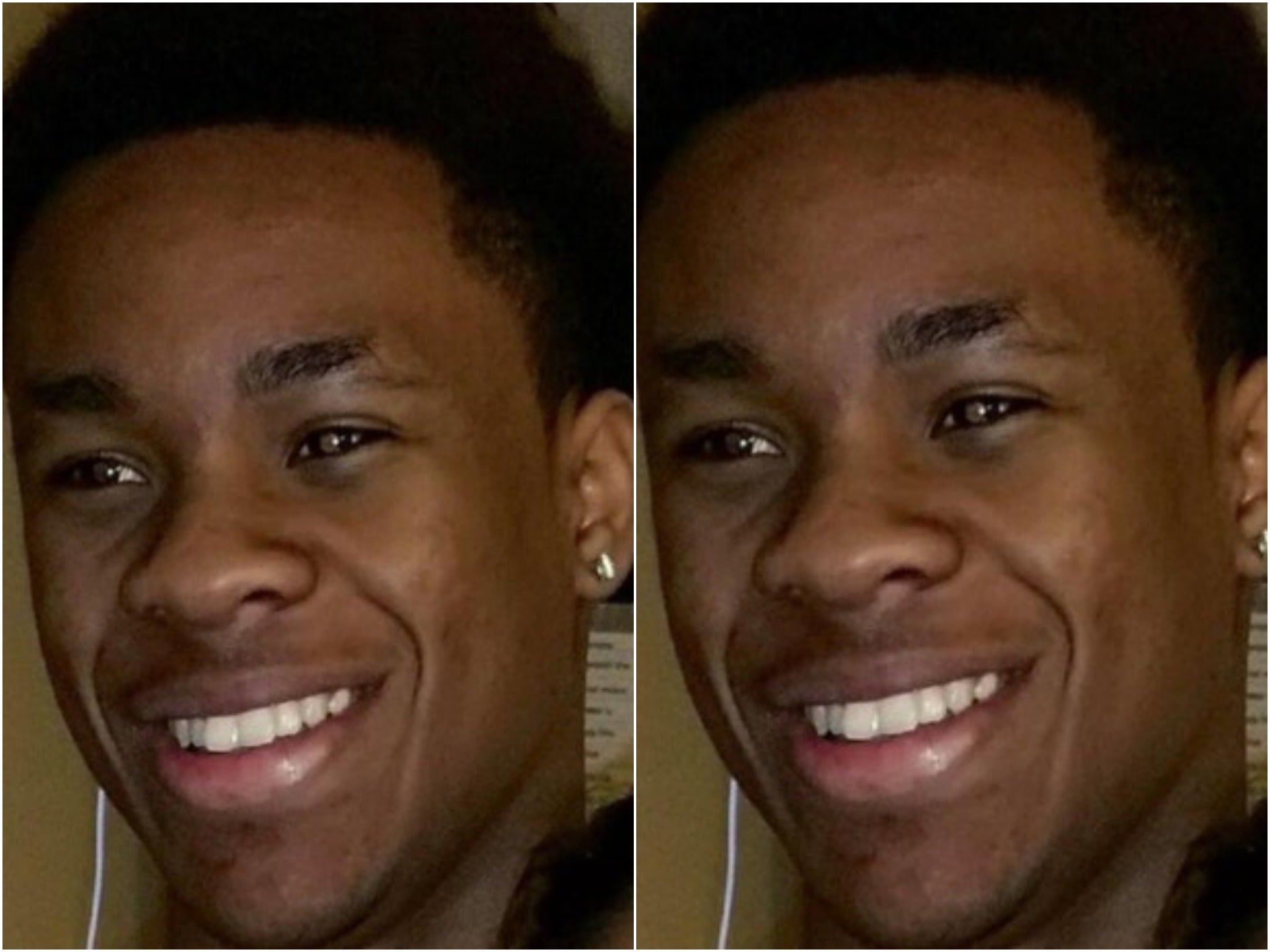
Hundreds, if not thousands, of students in St Paul, Minnesota, walked out of classes to protest the killing of Amir Locke, a 22-year-old Black man shot by Minneapolis police during a no-knock raid last week.
The students congregated at St Paul’s Central High School on Tuesday, before marching through the snow to the Minnesota governor’s mansion. The protest follows a weekend of demonstrations in Minneapolis and St Paul.
Minneapolis Police Department (MPD) officer Mark Hanneman killed Locke on 2 February, after officers entered an apartment where he was sleeping without knocking and shot him within 10 seconds.
In body camera footage released to the public, the 22-year-old appears to be just waking up underneath a blanket, and is holding a gun but not pointing it at officers or holding a finger on the trigger. Locke was not named on the search warrant used in the raid.
His cousin was arrested over the weekend as part of the ongoing homicide investigation that led to the search.
The organisers of the student protest, Minnesota Teen Activists, told Minnesota Public Radio their demands include banning no-knock warrants, overhauling and demilitarising the police in the Twin Cities, as well as the resignation of Minneapolis’s mayor and police chief.
Locke’s family has also called for change, and the banning of no-knock warrants.
"As professional people that carry guns and are supposed to protect and serve a community, they didn’t protect my son that day," Karen Wells, Amir Locke’s mother, told CNN. "They chose not to do that. And they took him from me and I am angry," she added, holding back tears.
On Friday, Minneapolis mayor Jacob Frey announced a “moratorium” on no-knock warrants, though critics note he had already campaigned in the most recent mayoral election on claims he ushered in a full “ban” of the practice in late 2020 after the killing of Breonna Taylor during a no-knock warrant in Kentucky.

“My language and what we were saying, certainly in longer form, honored the spirit of this policy change, but there were instances when it did not, and I own that,” the mayor said on Monday during a city council meeting.
In truth, both the mayor’s 2020 ban and his recently announced moratorium do not fully ban such searches and leave room for certain exceptions. And the MPD appears to highly value the practice.
According to research from University of St Thomas law professor Rachel Moran, who researches no-knock warrants, the MPD has requested at least 90 no-knock warrants after the 2020 ban was in place.
For the search of the apartment where Amir Locke was sleeping, St Paul police did not ask for a no-knock warrant; rather, Minneapolis police, who carried out the raid on behalf of their colleagues across the river, requested one.
Protests and discontent over policing are once again roiling the area, where police have killed a succession of Black men including George Floyd and Philando Castile in recent years in violent encounters. Activists say it’s part of a well-documented history of excessive policing of communities of colour in the region.







